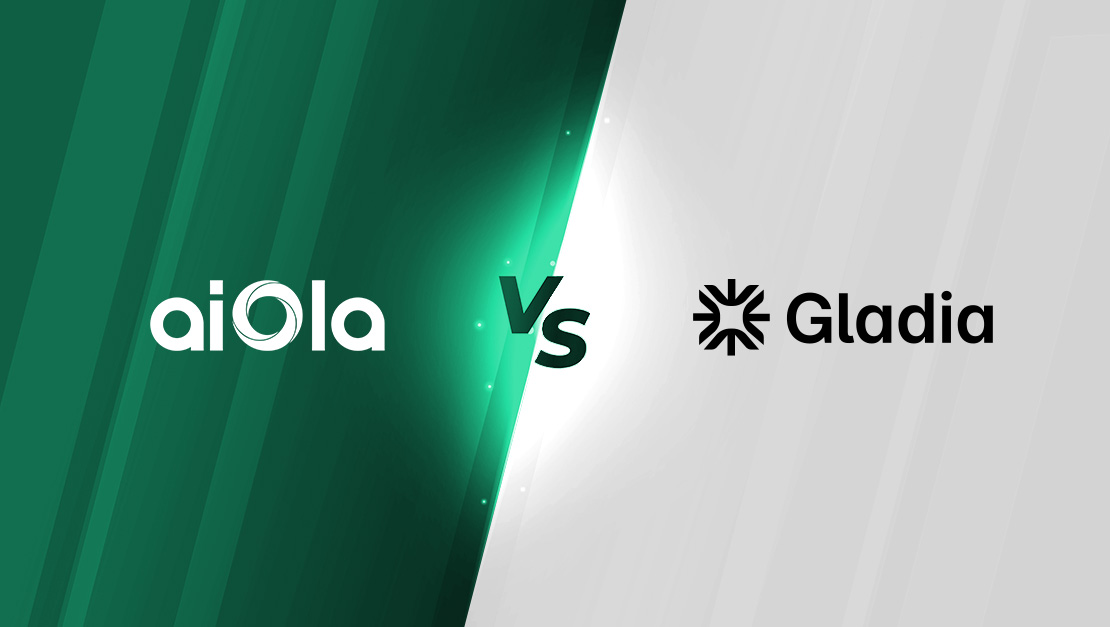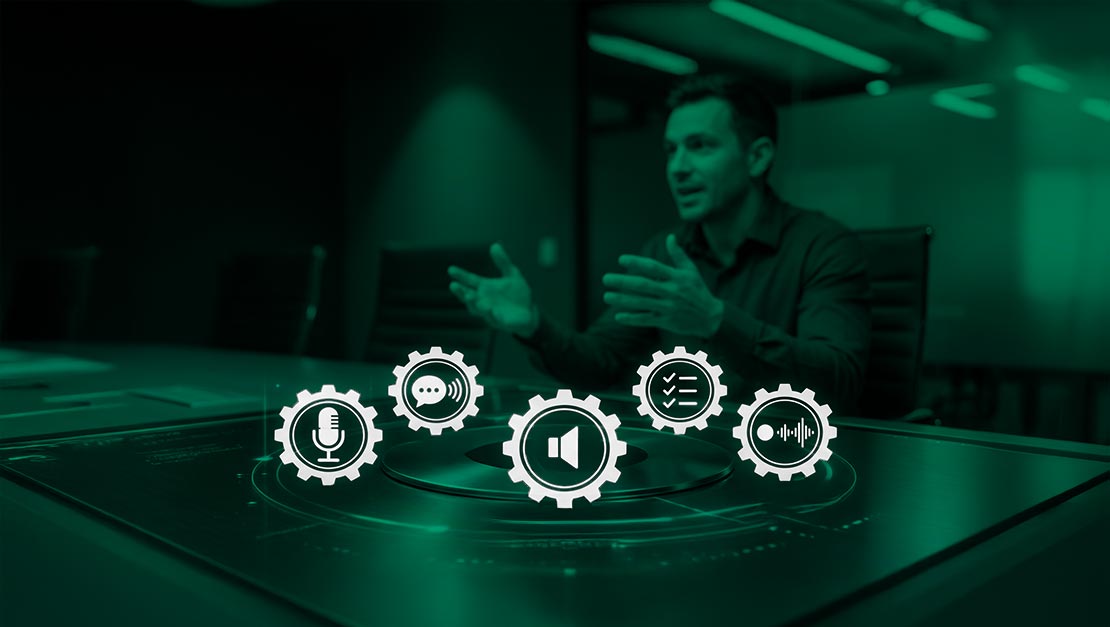If you’re exploring voice AI platforms, aiOla vs Gladia are likely on your radar. Both are modern, powerful, and highly capable when it comes to speech-to-text performance. But if you’re operating in high-stakes, jargon-heavy, or compliance-focused environments, one clearly stands out.
While Gladia is impressive in its own right—especially for developers or teams seeking fast, multilingual transcription—aiOla is purpose-built for the enterprise. From its ability to transcribe industry-specific speech with no training, to secure API integration and performance in chaotic, noisy environments, aiOla was designed to meet the real-world demands of large, complex organizations.
Let’s dive deeper into the differences.
What Are aiOla vs Gladia?
aiOla is a voice AI platform designed for enterprise-grade speech recognition, especially in environments where precision, compliance, and real-time insights matter. Its proprietary Jargonic ASR was built to recognize technical language, acronyms, and task-specific vocabulary—without retraining or custom prompt engineering. aiOla delivers structured, actionable data from live voice inputs and is used in industries like aviation, automotive, field services, and pharmaceuticals.
Gladia, on the other hand, is a powerful API-first platform focused on accurate speech-to-text transcription for a wide variety of use cases. It supports multiple languages, has strong benchmarks in clean audio environments, and is particularly attractive to developers looking to build fast transcription tools into their apps. However, it’s less tailored to enterprise-scale deployments and often lacks the nuanced accuracy needed for jargon-heavy conversations or chaotic environments.
Comparing Core Capabilities of aiOla vs. Gladia
Let’s take a look into how aiOla vs Gladia compare across key features you would want in a voice AI tool:
Use Cases
Gladia performs well for general voice transcription—think customer calls, podcasts, or meeting notes. It’s accessible, lightweight, and developer-friendly, with a straightforward API that makes it easy to embed into simple workflows.
aiOla, in contrast, is designed for operational complexity. It thrives in environments like aviation, logistics, and field operations—places where workers need to capture real-time updates, safety observations, or compliance data without ever touching a keyboard. It’s a voice-first platform that delivers structured, searchable, and secure data in the flow of work.
Accuracy & Word Error Rate
On traditional datasets like LibriSpeech or CommonVoice, both platforms perform competitively. But real value shows up under pressure. On the AMI meeting dataset, which replicates real-world, multi-speaker, noisy conversations, aiOla consistently outperforms its competition. It’s trained to thrive in those environments—handling speech overlaps, accents, and environmental noise.
Where Gladia shows strength in clean, controlled audio, aiOla shines in unpredictable, frontline conditions, outperforming top contenders.
Industry-Specific Jargon Recognition
This is where aiOla truly stands alone. With its Jargonic ASR, aiOla recognizes industry-specific terminology without any training. Whether it’s aviation acronyms, healthcare shorthand, or construction site slang, aiOla knows what it means and captures it with precision.
That’s possible because of its zero-shot learning architecture, which allows the model to recognize and transcribe unfamiliar terms with up to 95% precision—no labeled data, no prompt tuning, no retraining required.
Gladia, while excellent at general speech recognition, requires training or manual vocab configuration to handle niche or technical terms. That slows down deployment and increases resource overhead.
Real-Time Audio Intelligence
aiOla doesn’t just convert speech to text—it listens with context. Its real-time audio intelligence is built in, meaning it can instantly flag insights, trigger alerts, and structure data on the fly. That makes it powerful in compliance-heavy workflows where you need time-stamped, actionable records the moment something’s said.
Gladia doesn’t offer native real-time audio intelligence. While it can transcribe speech well, it lacks the deeper layer of insight extraction needed for high-stakes or regulated environments.
Multilingual and Accent-Aware Speech
aiOla supports 120+ languages and regional accents, making it enterprise-ready for global teams and diverse frontline users. Its accent-aware capabilities ensure consistent performance across varying speakers—whether you’re on a construction site in Chicago or a control tower in Bangkok.
Gladia, by comparison, supports fewer languages and offers limited accent coverage. That can create friction in teams with diverse speech patterns or where multilingual operation is a must.
Acoustic Adaptive AI
Noise is one of the hardest challenges for voice AI—and where aiOla sets itself apart again. Its acoustic adaptive AI is trained to understand speech in real-world conditions: loud machinery, background chatter, wind, or movement.
Gladia isn’t designed to adapt to those environments. Without adaptive tuning, its accuracy often drops sharply when conditions aren’t ideal.
Real-Time Reporting & Notifications
aiOla enables real-time reporting and structured notifications, turning speech into alerts, structured forms, and compliance-ready data without delay. It can immediately flag keywords, safety terms, or events that need human review or automated logging.
Gladia, however, doesn’t offer reporting or notifications out of the box. It’s built for basic transcription—making it less suitable for dynamic or action-driven enterprise use.
Integration and Security
Gladia is fast to implement and great for lightweight integrations, but it lacks the deeper enterprise stack that large organizations need.
aiOla was built with enterprise-grade security and integration in mind. That includes:
- Encrypted voice data (in transit and at rest)
- Role-based access controls
- Structured metadata with timestamps and user IDs
- Seamless integration into platforms like CRMs, ERPs, and industry-specific tools
These are must-haves for industries like healthcare, aviation, manufacturing, or finance—where data isn’t just sensitive, it’s subject to audits, regulations, and operational risk.
Zero-Shot Learning: No Training Required
Most voice AI systems require tuning, prompt engineering, or retraining to handle new domains or vocabulary. aiOla doesn’t. Its zero-shot capability means the platform adapts to new teams, terms, and processes immediately—without the burden of collecting training data or managing custom models.
This drastically reduces deployment time and IT overhead. You don’t need engineers to manage updates every time your process changes. You can just… talk.
Gladia, while flexible, often depends on manual vocabulary updates or retraining to deliver the same level of domain-specific performance.
Built for Enterprise Teams
At the end of the day, this is what really sets aiOla apart. It wasn’t just built for transcription—it was built for teams on the move. For crews in the field, operators on the floor, or safety inspectors with gloves on. It’s designed to capture real-world speech in real time, structure it instantly, and plug it into your systems without friction.
Whether you need compliance logs, voice-driven reporting, or multilingual support across regions, aiOla scales with you, integrates securely, and gives leadership instant insight into frontline activity.
Gladia is great for transcription. But aiOla is great for transformation—turning voice into action, insight, and enterprise value.
Final Thoughts: aiOla vs Gladia
If you’re a developer or content team looking for fast, accurate transcription across a range of languages, Gladia is a strong contender. It’s lightweight, fast to deploy, and offers impressive accuracy for general use.
But if you’re an enterprise leader looking to power high-stakes voice workflows—across teams, departments, or global operations—aiOla is built for you.
aiOla’s unique combination of zero-shot learning, Jargonic precision, noisy-environment performance, and enterprise-grade integration make it the clear choice for organizations that need more than just a transcript. aiOla meets multilingual demands and performs the unstructured to structured data process, all with a top-tier ASR model operating behind-the-scenes.
Want to see how aiOla works in your environment? Book a demo today and experience enterprise voice AI designed for the real world.













